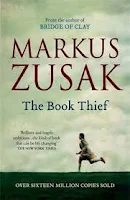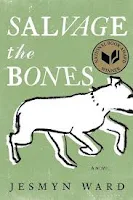There are some book prizes where I find myself most drawn to the books that appear on literary prize shortlists and winners’ lists. These are often the novels that stay with me long after reading because they are bold, layered, and beautifully written. So, I’ve decided to start keeping track. Here I have listed the winners of the book prizes that I am most drawn to, and I’ll be bolding the books I have read, asterix-ing the books I own but haven't read, and updating the lists as I read through them.
Please share any recommendations with me of books below that you have read and enjoyed.
You can click on the links below to be taken to the prize.
The Booker Prize
The Miles Franklin Award
Booker Prize
The Booker Prize is one of the most prestigious literary awards in the English-speaking world. Awarded annually to the best original novel written in English and published in the UK or Ireland, it celebrates outstanding fiction that pushes boundaries and sparks conversation. The shortlist is often a reliable source of exceptional reading.
2024 Orbital by Samantha Harvey
2023 Prophet Song by Paul Lynch
2022 The Seven Moons of Maali Almeida by Shehan Karunatilka
2021 The Promise by Damon Galgut
2020 Shuggie Bain by Douglas Stuart
2019 The Testaments by Margaret Atwood
2018 Milkman by Anna Burns
2017 Lincoln in the Bardo by George Saunders*
2016 The Sellout by Paul Beatty
2015 A Brief History of Seven Killings by Marlon James
2014 The Narrow Road to the Deep North by Richard Flanagan*
2013 The Luminaries by Eleanor Catton
2012 Bring Up the Bodies by Hilary Mantel
2011 The Sense of an Ending by Julian Barnes
2010 The Finkler Question by Howard Jacobson*
2009 Wolf Hall by Hilary Mantel*
2008 The White Tiger by Aravind Adiga
2007 The Gathering by Anne Enright
2006 The Inheritance of Loss by Kiran Desai
2005 The Sea by John Banville*
2004 The Line of Beauty by Alan Hollinghurst
2003 Vernon God Little DBC Pierre
2002 Life of Pi by Yann Martel
2001 The True History of the Kelly Gang by Peter Carey
2000 The Blind Assassin by Margaret Atwood
1999 Disgrace by JM Coetzee
1998 Amsterdam by Ian McEwan
1997 The God of Small Things by Arundhati Roy
1996 Last Orders by Graham Swift
1995 The Ghost Oad by Pat Barker
1994 How Late It Was, How Late by James Kelman
1993 Paddy Clarke Ha Ha Ha by Roddy Doyle*
1992 The English Patient by Michael Odaatje* / Sacred Hunger by Barry Unsworth
1991 The Famished Road by Ben Okri
1990 Possession: A Romance by AS Byatt*
1989 The Remains of the Day by Kazuo Ishiguro*
1988 Oscar and Lucinda by Peter Carey
1987 Moon Tiger by Penelope Lively
1986 The Old Devils by Kingsley Amis
1985 The Bone People by Keri Hulme
1984 Hotel du Lac by Anita Brookner
1983 Life and Times of Michael K by JM Coetzee
1982 Schindler's Ark by Thomas Keneally
1980 Midnight's Children by Salman Rushdie
1979 Rites of Passage by William Golding
1978 The Sea, The Sea by Iris Murdoch*
1977 Staying On by Paul Scott
1976 Saville by Savid Storey
1975 Dust and Dust by Ruth Prawer Jhabvala
1974 The Conservationist by Nadine Gordimer / Holiday by Stanley Middleton
1973 The Siege of Krishnapur by JG Farrell
1972 G by John Berger
1971 In a Free State by VS Naipaul
1970 Troubles by JG Farrell (The Lost Man Booker)
1970 The Elected Member by Bernice Rubens
1969 Something to Answer For by PH Newby
The Miles Franklin Award
Established through the will of My Brilliant Career author Stella Maria Miles Franklin, the Miles Franklin Literary Award is Australia’s most esteemed literary prize. It is awarded each year to a novel of the highest literary merit that presents “Australian life in any of its phases,” and it regularly showcases the depth and diversity of Australian storytelling.
2024 Praiseworthy by Alexis Wright
2023 Chai Time at Cinnamon Gardens by Shankari Chandran
2022 Bodies of Light by Jennifer Down
2021 The Labrinth by Amanda Lohrey
2020 The Yield by Tara June Winch
2019 Too Much Lip by Melissa Lucashenko
2018 The Life to Come by Michelle de Kretser
2017 Extinctions by Josephine Wilson
2016 Black Rock White City by AS Patric
2015 The Eye of the Sheep by Sofie Laguna
2014 All the Birds, Singing by Evie Wyld
2013 Questions of Travel Michelle de Kretser
2012 All That I Am by Anna Funder
2011 That Deadman Dance by Kim Scott
2010 Truth by Peter Temple
2009 Breath by Tim Winton*
2008 The Time We Have Taken by Steven Carroll
2007 Carpentaria by Alexis Wright
2006 The Ballad of Desmond Kale by Roger McDonald
2005 The White Earth by Andrew McGahan
2004 The Great Fire by Shirly Hazzard
2003 Journey to the Stone Country by Alex Miller
2002 Dirt Music by Tim Winton
2001 Dark Palace by Frank Moorhouse
2000 Drylands by Thea Astley / Benang by Kim Scott
1999 Eucalyptus by Murray Bail
1998 Jack Maggs by Peter Carey
1997 The Glade Within the Grove by David Foster
1996 Highways to a War by Christopher Koch
1995 The Hand That Signed the Paper by Helen Demidenko
1994 The Grisly Wife by Rodney Hall
1993 The Ancestor Game by Alex Miller
1992 Cloudstreet by Tim Burton
1991 The Great World by David Malouf
1990 Oceana Fine by Tom Flood
1989 Oscar and Lucinda by Peter Carey
1988 No award - date change for award
1987 Dancing on Coral by Glenda Adams
1986 The Well by Elizabeth Jolley
1985 The Doubleman by Christopher Koch
1984 Shallows by Tim Winton
1983 No award
1982 Just Relations by Rodney Hall
1981 Bliss by Peter Carey
1980 The Impersonators by Jessica Anderson
1979 A Woman of the Future by David Ireland
1978 Tirra Lirra by the River by Jessica Anderson*
1977 Swords and Crowns and Rings by Ruth Park
1976 The Glass Canoe by David Ireland
1975 Poor Fellow My Country by Xavier Herbert
1974 The Mango Tree by Ronald McKie
1973 No award
1972 The Acolyte by Thea Astley
1971 The Unknown Industrial Prisoner by David Ireland
1970 A Horse in the Air by Dal Stivens
1969 Clean Straw for Nothing by George Johnston*
1968 Three Cheers for the Paraclete by Thomas Keneally
1967 Bring Larks and Heroes by Thomas Keneally
1966 Trap by Peter Mathers
1965 The Slow Natives by Thea Astley
1964 My Brother Jack by George Johnston
1963 Careful, He Might Hear You by Sumner Locke Elliott
1962 The Well Dressed Explorer by Thea Astley / The Cupboard Under the Stairs by George Turner
1961 Riders in the Chariot by Patrick White
1960 The Irishman by Elizabeth O'Connor
1959 The Big Fellow by Vance Palmer
1958 To the Islands by Randolph Stow
1957 Voss by Patrick White*




.jfif)

















